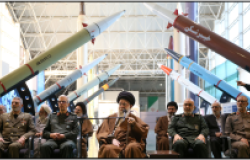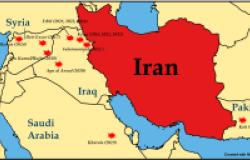"When Hatred is Bred in the Bone": The Psychocultural Foundations of Contemporary Terrorism
with Jerrold Post, Professor of Psychiatry, Political Psychology, and International Affairs, Elliott School of International Affairs, The George Washington University
Overview
Jerrold Post, Professor of Psychiatry, Political Psychology, and International Affairs, Elliott School of International Affairs, The George Washington University
This meeting, jointly sponsored by the Woodrow Wilson Center's Division of International Security Studies, the RAND Corporation, and the U.S. Army's Eisenhower National Security Series, was part of an ongoing series on terrorism and homeland security.
Dr. Post's presentation drew on his empirical research, including interviews with incarcerated Middle Eastern terrorists, who were members of Hamas, Hizbollah, and Islamic Jihad, as well as his work as an expert witness in the U.S. federal trial of an Al Qaeda member implicated in the 1998 bombing of the U.S. embassy in Tanzania. At the outset, he observed that explanations at the level of individual psychology are insufficient in trying to understand why people become involved in terrorism. The concepts of abnormality or psychopathology are not useful in understanding terrorism. Rather, group, organizational and social psychology, with a particular emphasis on "collective identity," provides the most constructive framework for understanding terrorist psychology and behavior. A powerful motivating force is the desire of individuals to become subsumed within a group as a source of identity. This process creates a powerful "groupthink" dynamic, Post argued, in which disagreement with the group can lead to expulsion or death and shared external danger reinforces group cohesion. The terrorist leader of plays a critical role in recruiting alienated, frustrated individuals and then transforming them into a coherent group. According to Post, the leader provides a "sense-making" unifying message that conveys a religious, political or ideological justification to the group's members.
Post noted that terrorism is a complex and diverse phenomenon, and that each type – ranging from national separatist to social revolutionary – must be understood in its unique cultural, historical, and political context. He focused, in particular, on religious fundamentalist terrorism carried out by groups seeking to preserve or create a religious social and political order through violence. The variant of religious fundamentalist terrorism of primary contemporary concern is radical Islamism, which seeks to eliminate the Western presence and influences in the Muslim world. These radical Islamist terrorist groups (even though increasingly decentralized after Al Qaeda lost its base in Afghanistan) are hierarchical and authoritarian. The "true believer," who becomes identified with the group, Post argued, is not conflicted over his or her acts of violence because religious authority sanctifies them. As such, "in a jihad, there are no moral red lines": the more the attack hurts the enemy, physically (in terms of casualties and damage) and psychologically, the better. Suicide terrorism, he stated, is a function of "the culture of martyrdom" in which suicide and the killing of innocents, both proscribed by Islam, are rationalized. Post also noted that the Internet is playing a major role in producing a climate of hatred in the socialization, recruitment, and radicalization of Muslim youth.
Post concluded by outlining the elements of an effective counter-terrorism strategy, which must be tailored to the particular context. The aim of the strategy should be: to inhibit potential terrorists from joining the group in the first place; to facilitate the ability of members to exit from the group; to reduce support for the group and to de-legitimize its leader; and, in the target states, to reduce societal vulnerability to terror.
Thank you for your interest in this event. Please send any feedback or questions to our Events staff.










